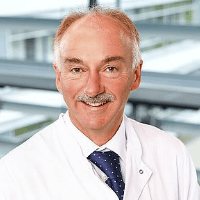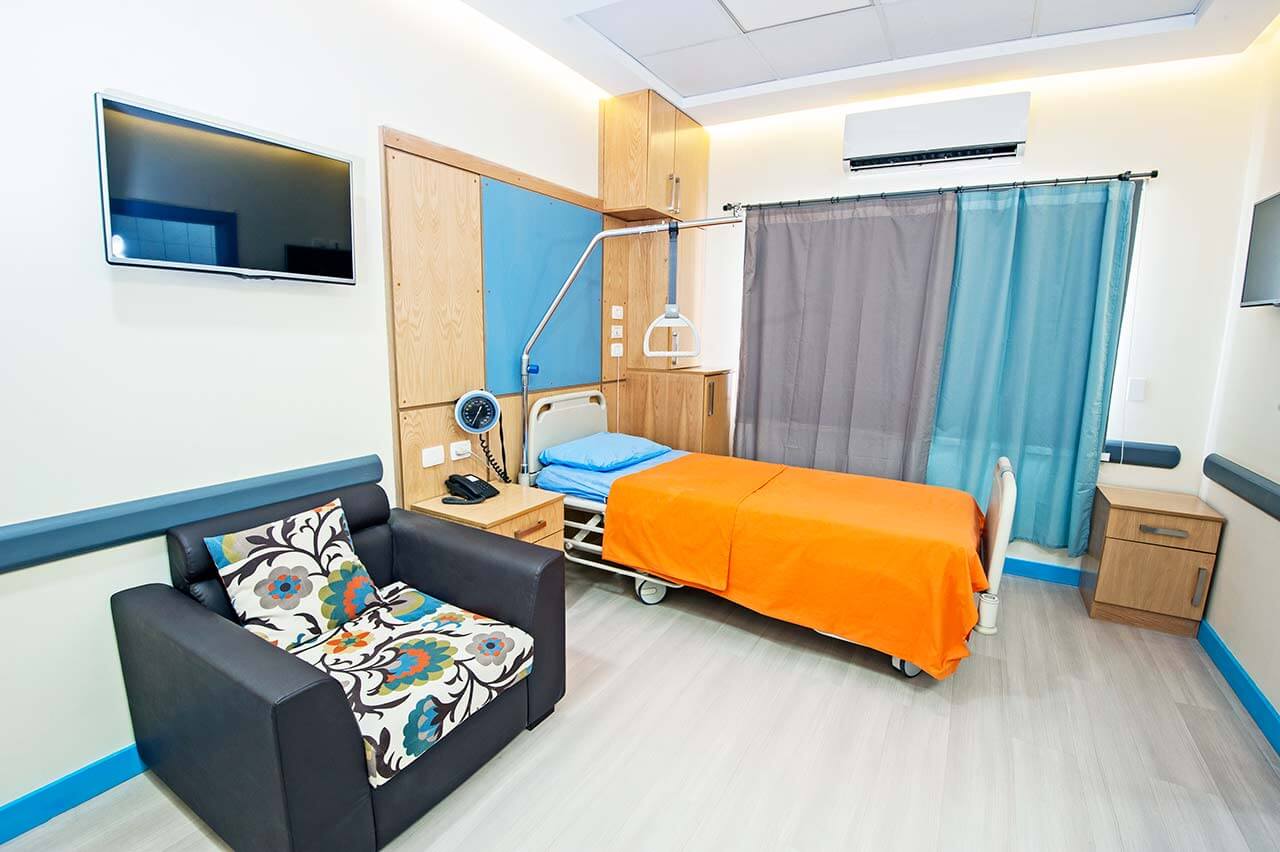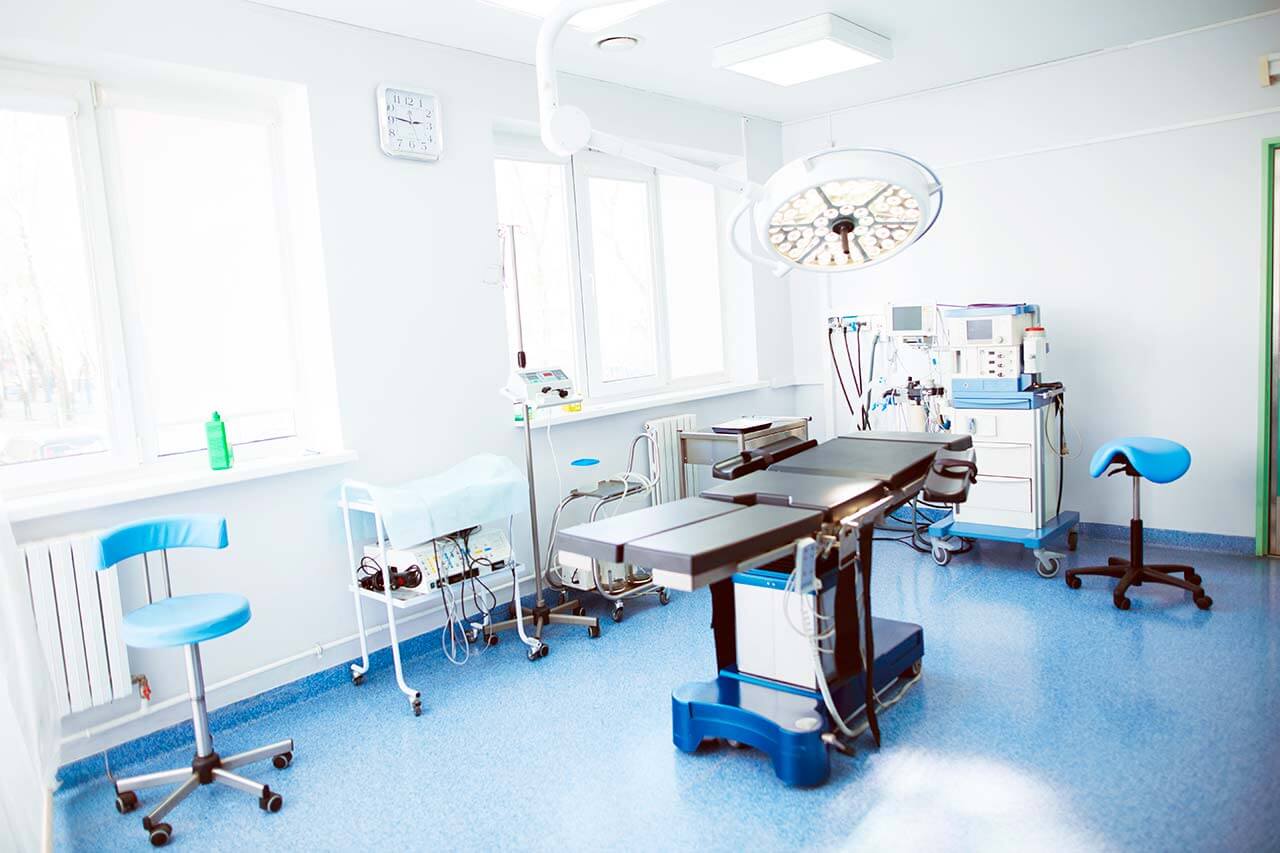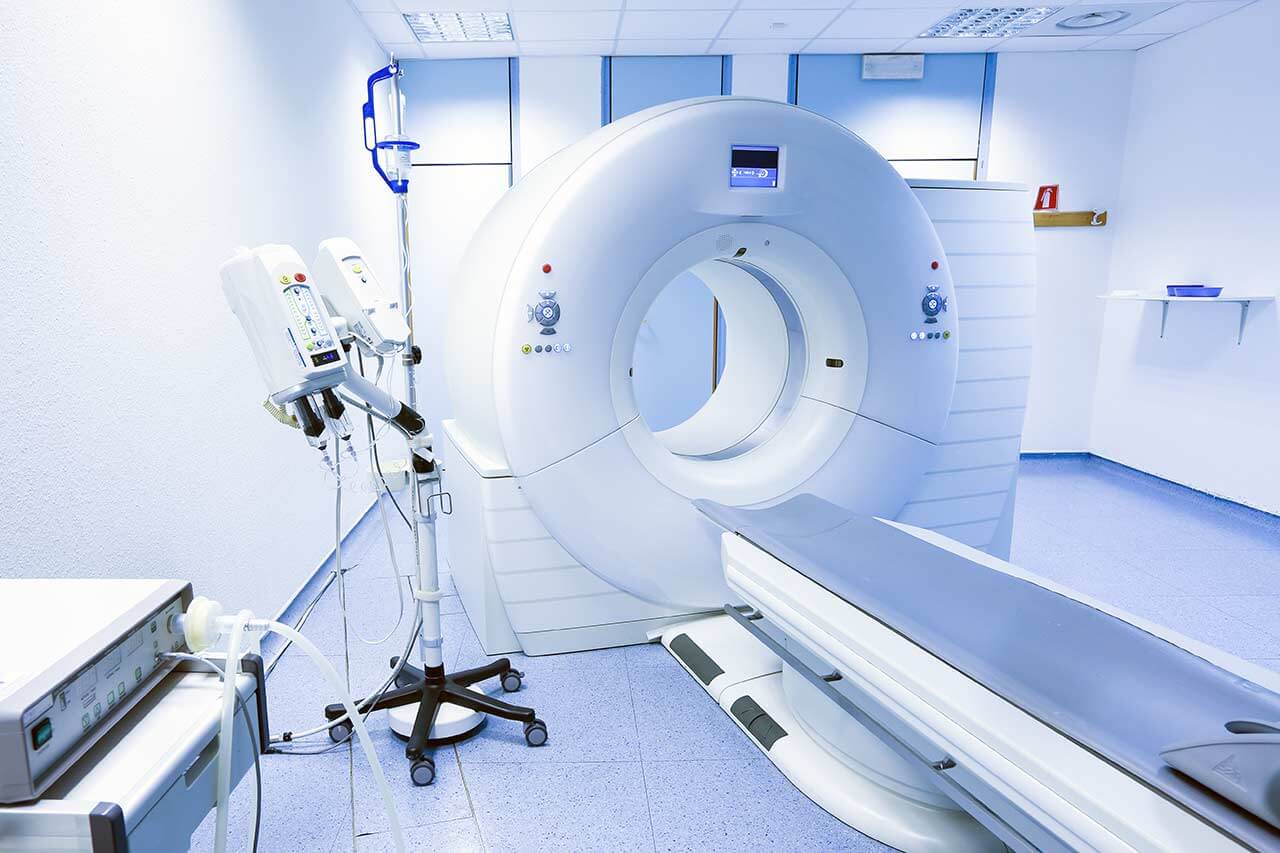
The program includes:
- Initial presentation in the clinic
- clinical history taking
- review of medical records
- physical examination
- laboratory tests:
- complete blood count
- biochemical analysis of blood
- TSH-basal, fT3, fT4
- lipase, amylase
- inflammation indicators (CRP, ESR)
- indicators blood coagulation
- abdominal ultrasound
- gastroscopy with biopsy
- ERCP
- analysis of hp (helicobacter pylori)
- endoscopic ultrasound
- CT/MRI abdomen
- symptomatic treatment
- control examinations
- the cost of essential medicines and materials
- nursing services
- nutrition recommendations
- full hospital accommodation
- explanation of future recommendations
Required documents
- Medical records
- Abdominal ultrasound (if available)
Service
You may also book:
 BookingHealth Price from:
BookingHealth Price from:
About the department
The Department of Gastroenterology, Hepatology and Endocrinology at the Municipal Hospital Karlsruhe provides the full range of medical services in the fields of its competence. The medical facility carries out modern diagnostics and effective treatment of diseases of the gastrointestinal tract, liver, gallbladder, bile ducts, pancreas, as well as all forms of diabetes mellitus, including its complications. Particular attention in the treatment of complications of diabetes mellitus is paid to the treatment of diabetic foot syndrome – the department has been certified as the Diabetic Foot Center. As one of the largest specialized medical facilities for the treatment of gastroenterological diseases in Baden-Wuerttemberg, the department guarantees optimal treatment of not only common, but also extremely rare pathologies of this spectrum. The specialists in gastroenterology also have rich experience in the treatment of patients with cancer of the digestive system. A decisive role in the department's successful clinical practice is played by close cooperation with the experts from other specialized disciplines. The department is headed by Prof. Dr. med. Liebwin Gossner.
A team of gastroenterologists deals with the treatment of benign and malignant diseases of the stomach, esophagus, small and large intestines. Upon admission to the department, a patient undergoes comprehensive diagnostics, taking into account the results of his clinical examination, complaints and medical history. The department has well-equipped diagnostic rooms with state-of-the-art ultrasound systems, rooms for functional diagnostics of the gastrointestinal tract (hydrogen breath tests, pH-metry and manometry), as well as rooms for performing invasive endoscopic examinations (gastroscopy, colonoscopy, esophagogastroduodenoscopy, enteroscopy, etc.). It is worth noting that the department is part of a certified interdisciplinary Bowel Center – certification of the German Cancer Society. Thus, the department provides optimal and structured treatment of intestinal pathologies. Particular attention is paid to the diagnostics, prevention and treatment of bowel cancer.
As for the department's therapeutic options in the field of gastroenterology, the specialists mostly manage to eliminate pathologies of the digestive system using only medications. However, some clinical cases require more radical measures, so endoscopic interventions may be prescribed to the patients. The department's specialists perform endoscopic procedures to remove polyps in the stomach and bowel, small tumors of the stomach and intestine in their early stages, hemostasis procedures to stop gastrointestinal bleeding, and endoscopic interventions to place stents for stenosis dilatation.
The specialists in hetalogy are responsible for the diagnostics and treatment of liver, gallbladder and bile duct diseases. The most common diagnoses in this field include viral hepatitis, cirrhosis, drug- and alcohol-induced liver lesions, inflammatory processes in the gallbladder, biliary obstruction and stenosis. To treat the above mentioned pathologies, both drug therapy and endoscopic procedures can be used. The treatment regimen is developed on an individual basis and drug therapy is preferred, if possible.
An integral part of the work of the department's doctors is endocrinology. In this field, key attention is paid to the treatment of type 1 and type 2 diabetes mellitus. Each clinical case is considered on an individual basis, after which the therapy is adapted to the needs of a particular patient. The medical facility is certified as a Training Center for Diabetes Patients (German Diabetes Society). The scope of the department's tasks also includes the treatment of complications of diabetes mellitus, the most common of which is diabetic foot syndrome. The department's specialists hold comprehensive consultations on nutrition, give recommendations on lifestyle modifications: patients need moderate physical activity, avoiding alcohol and smoking, etc.
The department's clinical focuses include:
- Gastroenterology
- Diagnostics and treatment of gastrointestinal diseases, including polyps and tumors at their early stages
- Diagnostics and treatment of esophageal diseases
- Diagnostics and treatment of bowel cancer within a specialized center
- Diagnostics and treatment of pancreatic diseases
- Hepatology
- Diagnostics and treatment of liver diseases, including drug- and alcohol-induced liver lesions
- Diagnostics and treatment of gallbladder diseases
- Diagnostics and treatment of bile duct diseases
- Endocrinology
- Diagnostics and treatment of all types of diabetes mellitus – focus on type 1 and type 2 diabetes mellitus
- Diagnostics and treatment of diabetic foot syndrome
- Other medical services
Photo of the doctor: (c) Städtische Klinikum Karlsruhe
About hospital
The Municipal Hospital Karlsruhe is a modern maximum care medical facility, which combines a long tradition and the advanced achievements of modern medicine. The hospital operates on the basis of the University of Freiburg, so scientific innovations in the field of diagnostics and treatment are continuously introduced into practice here. The hospital presents almost all areas of modern medicine, including many medical services for young patients.
A highly qualified and experienced team of more than 4,500 employees provides impeccable medical care. The medical facility has 1,571 beds for the hospitalization of its patients. The hospital admits more than 63,000 inpatients and about 186,000 outpatients annually. A large number of patients wishing to receive medical care in the hospital speak for themselves and are a confirmation of the exceptional service, as well as the effectiveness of the treatment provided.
The quality management system of the hospital's medical care is certified in accordance with the DIN EN ISO 9001 standards. Since 2016, the hospital has implemented a regular quality control in compliance with the strict standards of the Initiative Quality Medicine (IQM). In addition, almost all departments of the hospital have numerous certificates in their areas of specialization, including certificates from the German Cancer Society (DKG), the German Society for General and Visceral Surgery (DGAV), the German Cardiac Society (DGK), the German Diabetes Society (DDG), the German Society of Nephrology (DGN), the German Trauma Society (DGU), etc.
The main value of the hospital's staff is the health and satisfaction of their patients, so a respect and a humane attitude towards each patient remain priorities. The doctors and nursing staff support each patient in every possible way on their path to recovery. The specialists also strive to perform the most sparing, but at the same time the most effective and safe treatment.
Photo: (с) depositphotos
Accommodation in hospital
Patients rooms
The patients of the Municipal Hospital Karlsruhe live in cozy patient rooms with everything necessary for a comfortable stay. Standard patient room furnishing includes an automatically adjustable bed, a bedside table, a TV, and a telephone. The patient rooms have Wi-Fi. Each patient room also has an ensuite bathroom with a shower and a toilet.
The patient rooms in the pediatric departments are specially designed for children, so that young patients feel at home. Children can live in their patient room with one of their parents. There are also special playrooms designed for children.
Meals and Menus
The patients of the hospital are offered tasty and varied three meals a day: breakfast, lunch and dinner. The menu also features dietary meals. The kitchen staff will gladly accept all the individual wishes of patients.
The hospital also has a cozy cafe where one can have a tasty snack, drink tea, coffee and soft drinks.
Further details
Standard rooms include:
Religion
The hospital has two chapels that regularly host Protestant, Catholic, and Ecumenical worship services. A patient can watch the broadcast of the worship on TV channels in his own room, if desired.
Accompanying person
Your accompanying person may stay with you in your patient room or at the hotel of your choice during the inpatient program.
Hotel
You may stay at the hotel of your choice during the outpatient program. Our managers will support you for selecting the best option.





